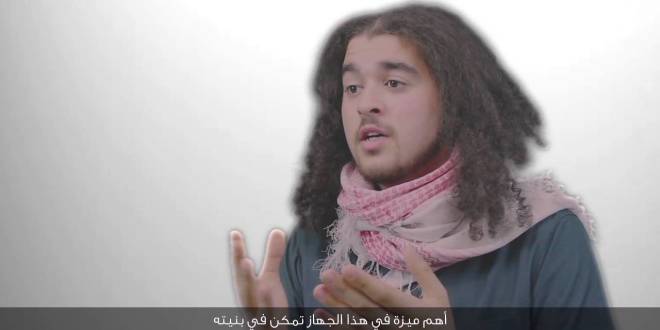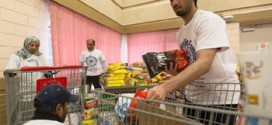
Ottawa: young Canadian Muslims trump IS with comedy show
An internet show created by a few students from Ottawa has picked up steam by cleverly poking fun at extremist group Islamic State (IS) and their message. They have also parodied, among other things, a well known Arabic Tide commercial, by having men play the role of traditional washerwomen.
They also used their satire to target social degradation and sexual harassment of women in the Arab world. The three young Muslims, who had lived in different parts of the Arab world before making their way to Canada in their teens, run The Weekly Show to poke fun at several Arab world musings.
23-year-old Maher Barghouthi, the director, was raised in Ramallah, 22-year-old host Anas Marwah, was born is Syria and raised in the kingdom of Saudi Arabia “because the Syrian regime didn’t like (his) father”, and actor Nader Kawash is a Palestinian brought up in Syria. The trio, along with six other occasional cast members, are trying to bring satire to the Arab World, inspired by The Daily Show’s John Stewart and Last Week Tonight’s John Oliver.
“We are trying to take the best of this world and introduce it to the Middle East and bring the best of the Middle East and introduce it to this world”, Barghouti, who studies biology at Carleton University, said.
The trio said that their key target audience are young Canadian Muslim, the same demographic the IS has its sights set on.
“ISIS has been able to get wide attention across the world by using very slick videos made by highly qualified people. By making people laugh we hope our message will sink in. Our message (to young Muslims) is that ISIS is using Islam in a sick way – using it as an excuse to kill people. They are going after your emotions. Canada is a beautiful country, don’t let this stuff spoil it for you”, Marwah, who studies political management at Carleton, said.
He also said that there is no evidence that the IS’ message is resonating in his circle of friends.
“For all of us, I think to know that someone would want to kill people in the name of our religion is frustrating”.
He added that young Muslims who are in street gangs would be most susceptible.
“They get to go to Syria, where there is no law and get to be part of a gang and kill people using real weapons”, he said.
However, any message being delivered to young people will be lost if isn’t delivered through Instagram, Facebook, Youtube or other social media,says Kawash, who studies electrical engineering at the University of Ottawa.
“This is the easiest way to send the message that ISIS is extremist and you can’t kill somebody just because they don’t agree with you”.
The three don’t claim to be experts in Islam, but feel that “perhaps (they) can cause Muslims to ask questions of those who are”.
 العربي الديمقراطي The Latest From The Arab World
العربي الديمقراطي The Latest From The Arab World




